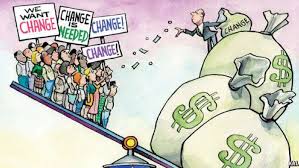Rating the Modern World
One of the most sophisticated civilisations of the 1500’s, the Incas, managed to survive with only three rules. “Ama Sua. Ama Llulla. Ama Quella” :
- Don’t lie
- Don’t steal
- Don’t be lazy
In other cultures, the Christian religions came up with the ten commandments. There were expressed in two subsets. One subset is about how to live together and the other about God. If we look at the 6 “how to live together rules” they are:
- Respect your father and mother.
- You must not commit murder.
- You must not commit adultery.
- You must not steal.
- You must not give false evidence against your neighbour.
- You must not be envious of your neighbour’s goods. You shall not be envious of his house nor his wife, nor anything that belongs to your neighbour.
There are general themes relating to not lying or stealing, contributing to the society and equality.
I want to play a little association game. I want to go back to basics and guess how a group of people without rules would co-exist. What rules would they have to put in place to survive? I then want to take those learnings and see how they stack up in modern life.

Imagine we have a group of 50 or 100 hunter-gatherers with no rules. There would be chaos. Self-interest would divide the group. To survive together, they need to agree to some rules that must be adhered to. If the rules are broken, there will be punishment or the person breaking the rules will be expelled from the tribe.
Stealing and Lying
Start with basics that the Incas and Christians (and most other societies) put in place. No stealing and no lying.
How does modern society rate on lying? People lie about all sorts of things ranging from qualifications for a job, their abilities, their relationships and their actions. Businesses are as bad. They lie about their product benefits, their treatment of customers and staff and the profits they make.
I saw a quote in the paper today. It related to the health of a footballer. He had hidden his condition before a match with the help of the team doctor. The doctor said he was not lying about the condition. He was just not telling the truth. Am I missing something?
After the match, Herald colleague Adrian Proszenko asked Ibrahim if he had lied to reporters.
“I just didn’t tell them the truth,” Ibrahim replied.
When it comes to stealing, generally businesses are worse than individuals. Sure there are people who steal from the tax office or bring home a few things from the workplace they might not be entitled to.

Businesses are constantly being uncovered stealing from customers. Whether it is the banks ripping off clients or companies making huge profits on the back of underpaid workers. Products with built-in obsolescence is just another way of stealing. Instead of a consumer buying a product that lasts ten years, the product is built to fail in three. Is this not stealing the price of the second and subsequent products from the consumer?
So lying and stealing is at a level that would get us thrown out of our hunter-gatherer tribe.
Inequality
Another problem our tribe would face unless they make some rules is one of inequality. We all go through a cycle from a dependent child to an independent adult to an elderly person who becomes dependent again. So is the tribe going to neglect the dependent? Of course not. They have rules around respect. The Commandments said “honour your father and mother” but you could expand that rule to look after those who cannot look after themselves. Do unto others as they would do unto you.
In a way, the Inca rule of “Don’t be lazy” is a similar rule. Pull your weight. Do the maximum you can for the society.
How do we rate in the modern world when it comes to looking after those who need help? At best, we get a B or C. Within each society, it will vary. Most countries are striving to educate the young, and some provide health care but few can say they are doing a great job. The politicians might, but those on the receiving end would rate it “could do better”.
There is another dimension to the Inca philosophy. There are those who want health care for example, to do everything for them. Sorry but a government funded facelift is not something that benefits society. It is not something that the society owes the individual. There are those who see social benefits as an excuse for being lazy. The punishment for laziness in the Inca world was stoning, hanging or being pushed off a cliff. A solid incentive to do as much as you could to benefit the tribe while still getting support when you needed.

Part of inequality is the global aspect. Almost every developed country does a little bit to help lesser developed countries. A bit of foreign aid, and a few immigrants. Hardly get a gold star for changing world inequality. The attitude seems to be that I will make some effort on inequality within my own borders but only do a token amount outside those borders.
Would the modern world measure up to the tribe on inequality? Another fail.
Relationships
A big problem with tribes is two males interested in one female or vice versa. Relationships can cause all sorts of fractures in a tribe. The Christian approach is no adultery.
Side Note: The definition “voluntary sexual intercourse between a married person and a person who is not their spouse” leaves a few loopholes. It has a let-off for unmarried people. It fails to mention gay marriage. Perhaps the literal translation was not what was intended.
In the Inca community, a man had a wife but also could have numerous mistresses who were all well treated and lived with the man. It would be a brave man who today would suggest to his wife that a few mistresses could move into the spare bedrooms.
How does the modern world manage relationships? Certainly a fail in the marriage for life stakes. Whilst the disruption in individual relationship changes is felt within the personal circle, it has an oblique impact on society as a whole.

The impact is on the family. The term “dysfunctional family” is one we hear regularly today. Some family breakdowns don’t severely impact children. Others create problems that surface in the subsequent generations.
Should we turn back the clock? I don’t believe so, but we need to address the issue of single parents. How do we support them, and provide a nurturing environment to the children?
I think the tribe would be better at looking after the children of single parents than we are today. The children would be absorbed into a network of families and each family play their part in raising the child. It takes a village to raise a child is an African proverb. How does the village rate today?
Envy and Greed
Finally, let’s look at a critical social rule. Envy and greed are siblings. They feed off one another. The tribe would implode if envy was allowed to run rampant. If one group is envious of another group, you form cliques. Suddenly people are working against one another, not with one another. The final Commandment is about envy.
Today? Envy and greed are the basis of the consumer society. My whatever is bigger, shinier and more expensive than your whatever. If you have a better widget, I will be right down to the department store to buy one too.
Can someone explain to me why we need a wardrobe full of clothes? Why we need a new phone every few years? If you can explain, is it possible to do it without using the words “envy” or “greed”?

The modern world is a big fail on envy. I was listening to a podcast. An Aussie comedian and musician, Tim Minchin, lived in the US for a period. He has a way of being fairly direct and cut through the social niceties.
He was saying he formed a friendship with an American and after a few months said: “Why have you never asked me around to your place?” The American replied “My place is nothing special. You can come around and look at it if you like.” Tim’s response was “I don’t want to look at your house. I want to hang out with you. I don’t care if you live in a cave. If you come to my place, you will see clothes on the floor, a yard that has not seen a lawn mower and clutter everywhere. I want to see you, not your house.”
The world today
If we strip away our complications and so called sophistication, we are just a bunch of people trying to live together. We once lived in concentric circles. The inner circle was the family. The next the culture usually defined by the country. The outer circle was the world.
Today those circles are not concentric. They blend and overlap. A family can be spread across the world. Cultures can mix within a family. The lines have become blurred.
What has not changed are the basic rules of society. Unless we focus on those rules, social breakdown will ensue. We seem to have lost sight of that fact, and much of the disruption in society today can be traced back to a lack of focus on how we live together.

Glossy terms like “fake news” and “incentive payments for executives” break all the basic social rules. “Fake news” is about lying. “Incentive payments” are about not being lazy. It is smoke and mirrors.
Every now and then, a scandal emerges which people say can be traced back to greed, or envy or lying. There is a temporary outcry that a person or a business or government has broken some basic social rules. Unfortunately, it ends there. Someone might be punished, but the world moves on and we make the same mistake again. So what is the answer?
My suggestion is that to start thinking about our choices as individuals, voters, customers, workers and decision makers. Look at things in a different framework. Ask ourselves if we are breaking social rules around lying, stealing, envy, greed, inequality and social equity. Are the people we deal with breaking those rules? Are we, in fact, helping perpetuate the situation.
If so, call it out. Judge companies not by how much profit they make but by how well they fit our social model.
Talk to others about the morality of what we all see around us.
Conclusion
One person cannot change society. One person can only talk to others and ask them to think about life in a different context. This article will be a waste of time if at least one person does not start to think about the points raised and talk to another person. It is up to you.






